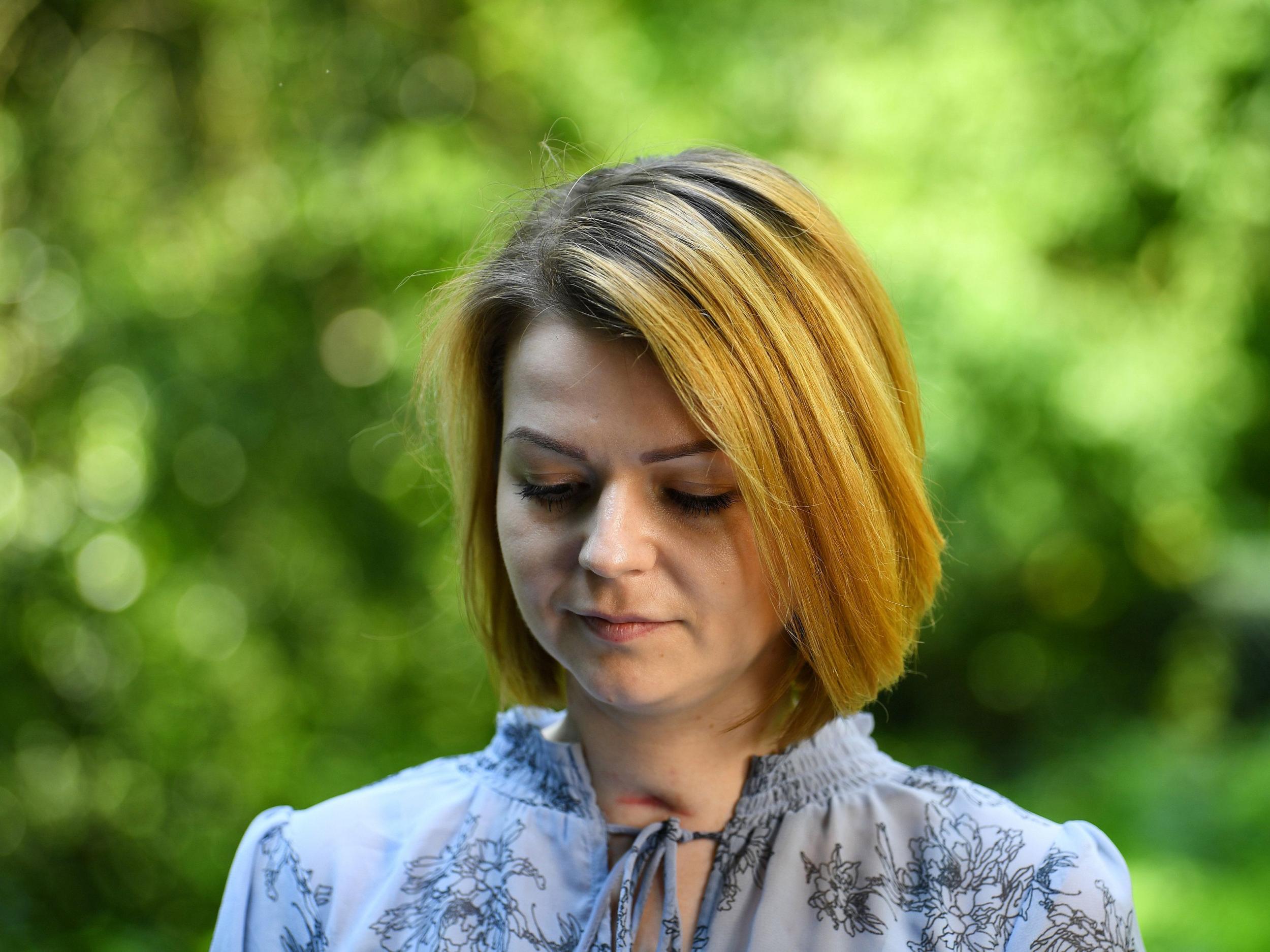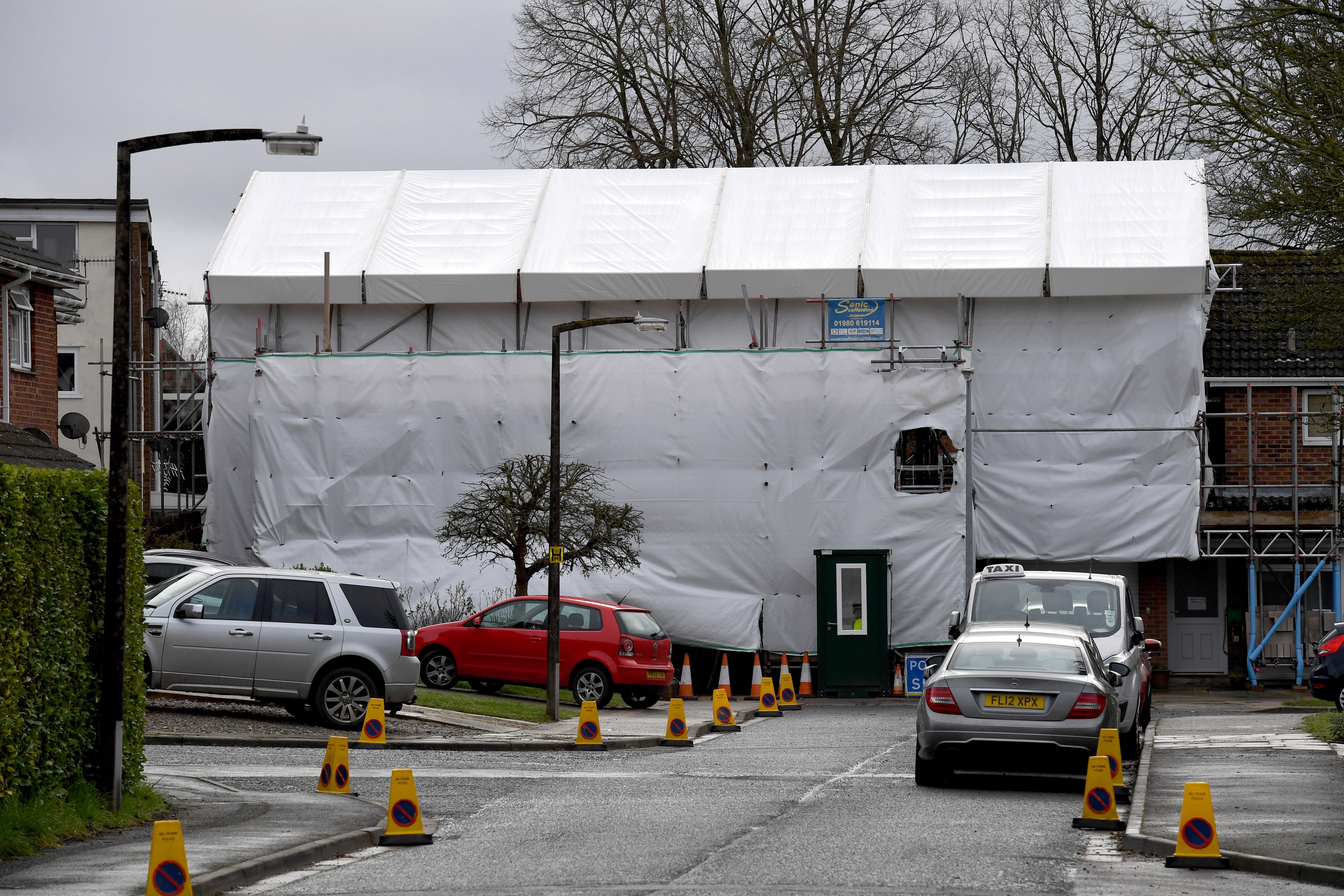Secrets of Salisbury Poisonings: The Sergei Skripal assassination attempt that inspired a new documentary
New Discovery Plus documentary reflects the human experiences of those who were at the centre of the incident

Your support helps us to tell the story
From reproductive rights to climate change to Big Tech, The Independent is on the ground when the story is developing. Whether it's investigating the financials of Elon Musk's pro-Trump PAC or producing our latest documentary, 'The A Word', which shines a light on the American women fighting for reproductive rights, we know how important it is to parse out the facts from the messaging.
At such a critical moment in US history, we need reporters on the ground. Your donation allows us to keep sending journalists to speak to both sides of the story.
The Independent is trusted by Americans across the entire political spectrum. And unlike many other quality news outlets, we choose not to lock Americans out of our reporting and analysis with paywalls. We believe quality journalism should be available to everyone, paid for by those who can afford it.
Your support makes all the difference.In 2018, a former Russian military officer and double agent for the British intelligence agencies, Sergei Skripal, and his daughter, were poisoned by a deadly nerve agent in Salisbury, England.
The incident is the subject of a new Discovery Plus documentary, Secrets of Salisbury Poisonings, which features interviews with those involved in the case.
It also speaks to Amesbury resident Charlie Rowley, whose partner Dawn Sturgess died on 8 July after spraying herself with what she thought was perfume, but was in fact the same deadly nerve agent, novichok.
Rowley, who had found the bottle of perfume in a bin, was admitted to hospital but later recovered.
On the morning of 5 March 2018, the Salisbury NHS Foundation Trust declared a major incident in response to concerns raised by medical staff. Shortly afterward, this became a multi-agency incident named Operation Fairline.
Health authorities began checking members of the emergency services and the public for possible symptoms caused by the nerve agent. Two police officers were treated for minor symptoms – itchy eyes and wheezing – while one, Detective Sergeant Nick Bailey, who had been sent to Skripal’s house to investigate, was by now in a serious condition.

Bailey had started his day “very normally” when he overheard radio chatter about two people found slumped on a bench.
“I thought ‘I‘m a bit bored with what I’m doing, so I’ll walk down to see what’s going on’,” Bailey recalled at a summit in London earlier this year.
“At this stage, we didn’t know what had happened to them, it could have been alcohol or drug-related, or a medical emergency. We had no idea.”
The investigation led to Skripal’s house, where the former officer unknowingly touched the front door handle still covered in novichok allegedly left by Russian GRU agents.

Watch Apple TV+ free for 7 days
New subscribers only. £8.99/mo. after free trial. Plan auto-renews until cancelled

Watch Apple TV+ free for 7 days
New subscribers only. £8.99/mo. after free trial. Plan auto-renews until cancelled
It left a forensic latex glove he was wearing “saturated” in the substance. At this time, officials were unaware of the substance that had caused Skripal and his daughter to collapse.

Bailey said that as symptoms of nerve agent poisoning set in over the coming hours, he was still in the dark. He described feeling “very tired, and sweaty”.
The day after the poisoning, Bailey went to hospital for a check-up because he felt unwell, but was told that his vital statistics were fine, after which he returned home.
But after he went to bed “everything changed”, he said, and he started having nightmares and hallucinations including a “tsunami of fire” engulfing his skin.
Bailey returned to the hospital on 6 March, after his vision became impaired and he started vomiting. He was told that blood tests found a nerve agent in his system.
The officer was treated for two-and-a-half weeks in hospital. Skripal and his daughter also survived. Police later revealed that the amount of novichok concealed in a counterfeit perfume bottle used in the 2018 Salisbury attack could have killed thousands of people.
Last week, BBC’s 2020 mini-series The Salisbury Poisonings also landed on Netflix. The series stars Anne-Marie Duff, Rafe Spall, and Annabel Scholey also follows the incidents that unfolded in Salisbury in 2018.
“We felt with Salisbury there was an untold human story that should be told as soon as we started researching it,” writer Declan Law said at the time of its release, adding: “We found these incredible stories that no one had ever heard before about the response to what happened there.”
Writer Adam Patterson added: “The agreement we came to with us and the BBC was that we would only tell the story if the people affected wanted to tell it, and I think ethically that puts us in the right place to tell it, but also we wanted to do something different, we didn’t want to speculate on the spy angle, we wanted to look at it through a different lens, and essentially look at how an invisible threat can essentially just destroy a place.”
Three Kremlin agents have so far been charged over the 2018 novichok attack targeting Skripal.
Secrets of Salisbury Poisonings will premiere on Discovery Plus on 26 December.